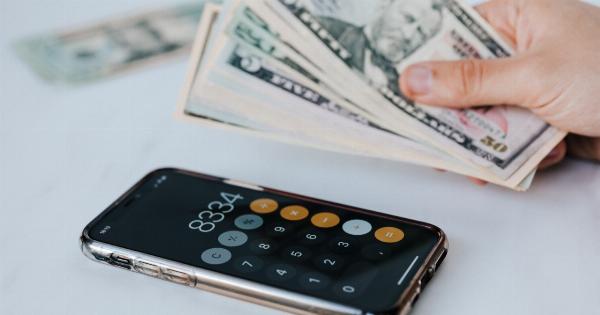The prevalence of mobile phone use has significantly increased over the years. According to Statista, the number of smartphone users worldwide reached 3.8 billion in 2021, and it is projected to grow to 4.3 billion in 2023.
While technological advancements have brought various benefits, it also has a downside. Mobile phone addiction is now a growing concern among individuals of all ages.
What is Mobile Phone Addiction?
Mobile phone addiction is a term used to describe excessive and compulsive use of mobile devices such as smartphones and tablets.
It is a form of addiction that affects an individual’s mental health and disrupts their social life, education, and work.
Signs and Symptoms of Mobile Phone Addiction
Mobile phone addiction can manifest in various ways, and the symptoms may differ among individuals. However, some common signs and symptoms are:.
- Constant urge to check the phone
- Difficulty in controlling the use of mobile phones
- Inability to reduce phone usage despite being aware of its negative impacts on mental health and daily life
- Using the phone even in inappropriate situations such as during a meeting, while driving, or in a social gathering
- Feeling anxious, agitated, or restless without a phone
- Unable to focus on daily activities and work due to phone usage
- Sleep disturbances due to excess phone usage
Causes of Mobile Phone Addiction
Several factors can lead to mobile phone addiction; some of them are:.
- Instant gratification: The immediate response received from phone usage can be addictive and result in a constant need for checking the device.
- Social media: Social media apps are designed to keep individuals engaged with their features such as push notifications, messages, comments, and likes. Studies have shown that excessive use of social media can lead to addiction.
- Mental health: Mobile phone addiction can also be linked to mental health disorders such as anxiety, depression, and attention deficit hyperactivity disorder (ADHD).
- Peer Pressure: The constant need to fit in and be connected with peers can lead to excessive phone usage.
Effects of Mobile Phone Addiction
The effects of mobile phone addiction can be both psychological and physical. Some of the effects are:.
- Anxiety and depression: Excessive phone usage can lead to anxiety and depression due to the pressure and stress it creates.
- Decreased productivity: Mobile phone addiction can lead to decreased productivity at work or school due to the constant distraction.
- Insomnia: The blue light emitted from mobile phones can interfere with sleep patterns and lead to insomnia.
- Physical health: Long-term phone usage can cause physical health problems such as eye strain, neck and back pain, and carpal tunnel syndrome.
- Poor social skills: Excessive phone usage can lead to poor social skills, isolation, and social anxiety.
Treatment of Mobile Phone Addiction
Mobile phone addiction can lead to severe problems, and it is essential to seek treatment as early as possible. Some of the treatments are:.
- Cognitive Behavioral Therapy (CBT): CBT is a type of therapy that focuses on changing one’s behavior and thought patterns.
- Group therapy: Group therapy is a type of therapy that involves individuals with similar problems to share their experiences and receive support.
- Self-help techniques: Self-help techniques such as meditation, mindfulness, and exercise can help manage addiction.
- Medication: In some cases, medication can be prescribed to manage anxiety and depression symptoms.
Prevention of Mobile Phone Addiction
Prevention is always better than cure, and some measures can be taken to prevent mobile phone addiction. Some of them are:.
- Setting boundaries: Setting boundaries with mobile phone usage can help avoid addiction.
- Turning off notifications: Turning off notifications can decrease the urge to use the phone regularly.
- Engaging in other activities: Engaging in other activities such as hobbies, sports, and socializing can help prevent addiction.
- Seeking support: Seeking support from family and friends can help manage addiction.
Conclusion
Mobile phone addiction is a growing concern in society, and it is essential to identify and manage addiction as early as possible.
While technological advancements have numerous benefits, it is vital to use them responsibly and avoid negative impacts on mental and physical health. Prevention is always better than cure, and taking preventive measures can help in avoiding addiction.






























